第28章 A.D.16-19(7)
Libo meanwhile, in mourning apparel and accompanied by ladies of the highest rank, went to house after house, entreating his relatives, and imploring some eloquent voice to ward off his perils; which all refused, on different pretexts, but from the same apprehension.On the day the Senate met, jaded with fear and mental anguish, or, as some have related, feigning illness, he was carried in a litter to the doors of the Senate House, and leaning on his brother he raised his hands and voice in supplication to Tiberius, who received him with unmoved countenance.The emperor then read out the charges and the accusers' names, with such calmness as not to seem to soften or aggravate the accusations.
Besides Trio and Catus, Fonteius Agrippa and Caius Vibius were among his accusers, and claimed with eager rivalry the privilege of conducting the case for the prosecution, till Vibius, as they would not yield one to the other, and Libo had entered without counsel, offered to state the charges against him singly, and produced an extravagantly absurd accusation, according to which Libo had consulted persons whether he would have such wealth as to be able to cover the Appian road as far as Brundisium with money.There were other questions of the same sort, quite senseless and idle; if leniently regarded, pitiable.But there was one paper in Libo's handwriting, so the prosecutor alleged, with the names of Caesars and of Senators, to which marks were affixed of dreadful or mysterious significance.When the accused denied this, it was decided that his slaves who recognised the writing should be examined by torture.As an ancient statute of the Senate forbade such inquiry in a case affecting a master's life, Tiberius, with his cleverness in devising new law, ordered Libo's slaves to be sold singly to the State-agent, so that, forsooth, without an infringement of the Senate's decree, Libo might be tried on their evidence.As a consequence, the defendant asked an adjournment till next day, and having gone home he charged his kinsman, Publius Quirinus, with his last prayer to the emperor.
The answer was that he should address himself to the Senate.
Meanwhile his house was surrounded with soldiers; they crowded noisily even about the entrance, so that they could be heard and seen; when Libo, whose anguish drove him from the very banquet he had prepared as his last gratification, called for a minister of death, grasped the hands of his slaves, and thrust a sword into them.In their confusion, as they shrank back, they overturned the lamp on the table at his side, and in the darkness, now to him the gloom of death, he aimed two blows at a vital part.At the groans of the falling man his freedmen hurried up, and the soldiers, seeing the bloody deed, stood aloof.Yet the prosecution was continued in the Senate with the same persistency, and Tiberius declared on oath that he would have interceded for his life, guilty though he was, but for his hasty suicide.
His property was divided among his accusers, and praetorships out of the usual order were conferred on those who were of senators' rank.
Cotta Messalinus then proposed that Libo's bust should not be carried in the funeral procession of any of his descendants; and Cneius Lentulus, that no Scribonius should assume the surname of Drusus.Days of public thanksgiving were appointed on the suggestion of Pomponius Flaccus.Offerings were given to Jupiter, Mars, and Concord, and the 13th day of September, on which Libo had killed himself, was to be observed as a festival, on the motion of Gallus Asinius, Papius Mutilus, and Lucius Apronius.I have mentioned the proposals and sycophancy of these men, in order to bring to light this old-standing evil in the State.
Decrees of the Senate were also passed to expel from Italy astrologers and magicians.One of their number, Lucius Pituanius, was hurled from the Rock.Another, Publius Marcius, was executed, according to ancient custom, by the consuls outside the Esquiline Gate, after the trumpets had been bidden to sound.
On the next day of the Senate's meeting much was said against the luxury of the country by Quintus Haterius, an ex-consul, and by Octavius Fronto, an ex-praetor.It was decided that vessels of solid gold should not be made for the serving of food, and that men should not disgrace themselves with silken clothing from the East.Fronto went further, and insisted on restrictions being put on plate, furniture, and household establishments.It was indeed still usual with the Senators, when it was their turn to vote, to suggest anything they thought for the State's advantage.Gallus Asinius argued on the other side."With the growth of the empire private wealth too," he said, "had increased, and there was nothing new in this, but it accorded with the fashions of the earliest antiquity.Riches were one thing with the Fabricii, quite another with the Scipios.The State was the standard of everything; when it was poor, the homes of the citizens were humble; when it reached such magnificence, private grandeur increased.In household establishments, and plate, and in whatever was provided for use, there was neither excess nor parsimony except in relation to the fortune of the possessor.Adistinction had been made in the assessments of Senators and knights, not because they differed naturally, but that the superiority of the one class in places in the theatre, in rank and in honour, might be also maintained in everything else which insured mental repose and bodily recreation, unless indeed men in the highest position were to undergo more anxieties and more dangers, and to be at the same time deprived of all solace under those anxieties and dangers." Gallus gained a ready assent, under these specious phrases, by a confession of failings with which his audience symphathised.And Tiberius too had added that this was not a time for censorship, and that if there were any declension in manners, a promoter of reform would not be wanting.